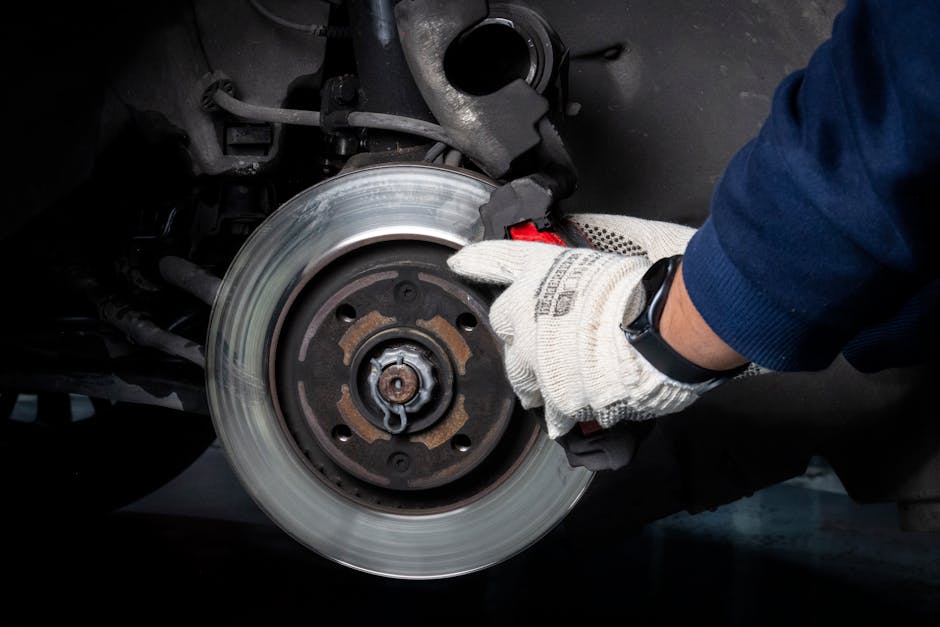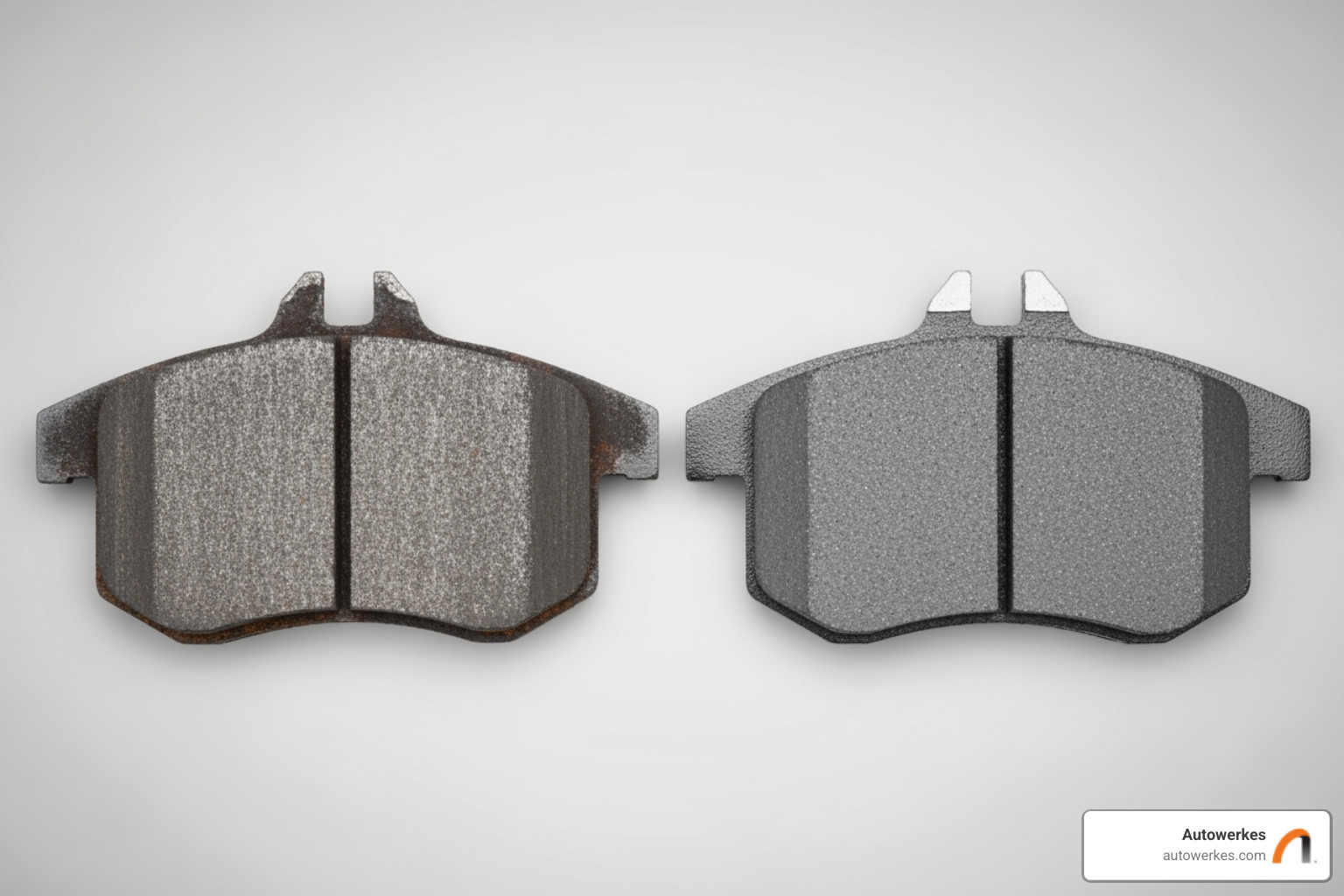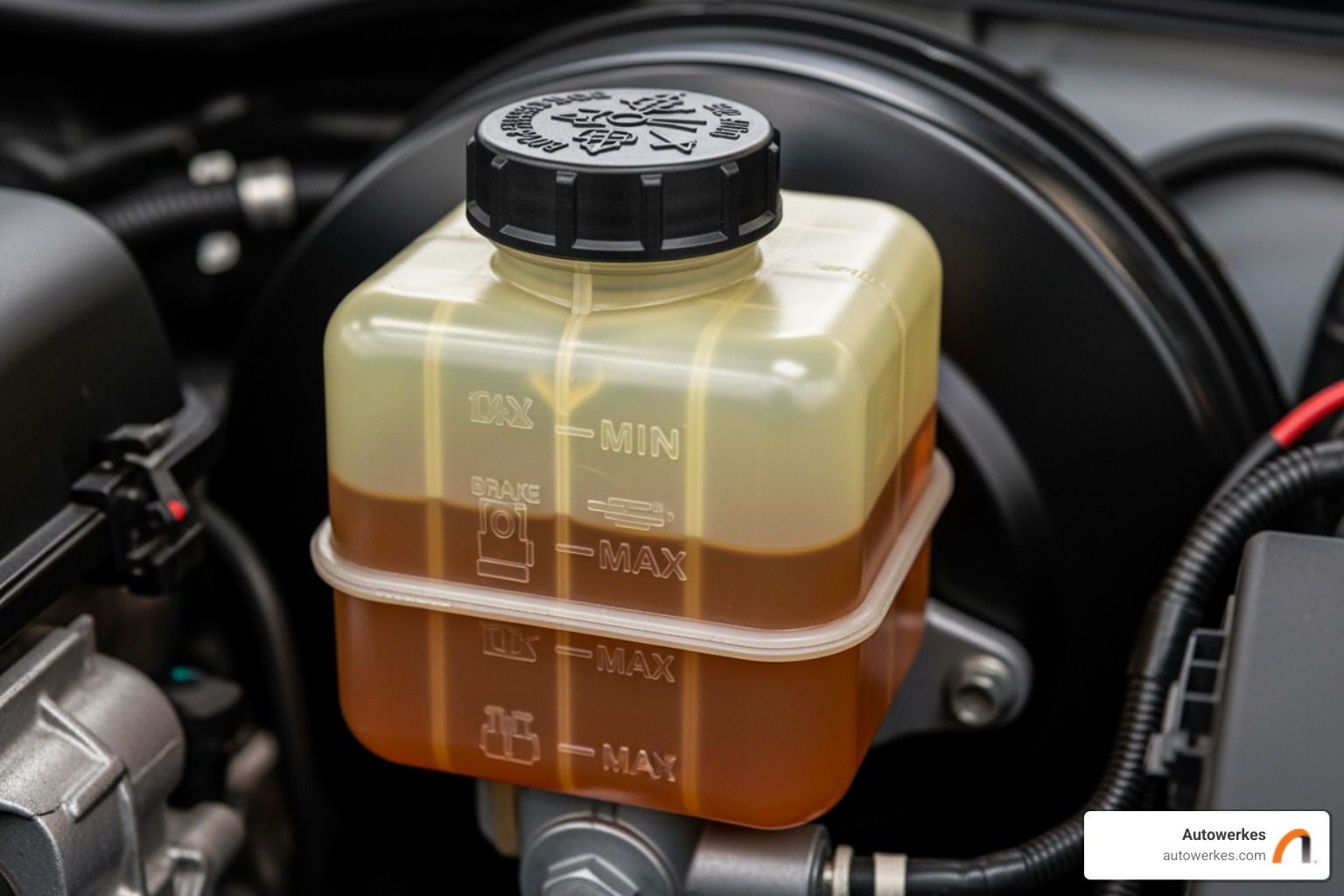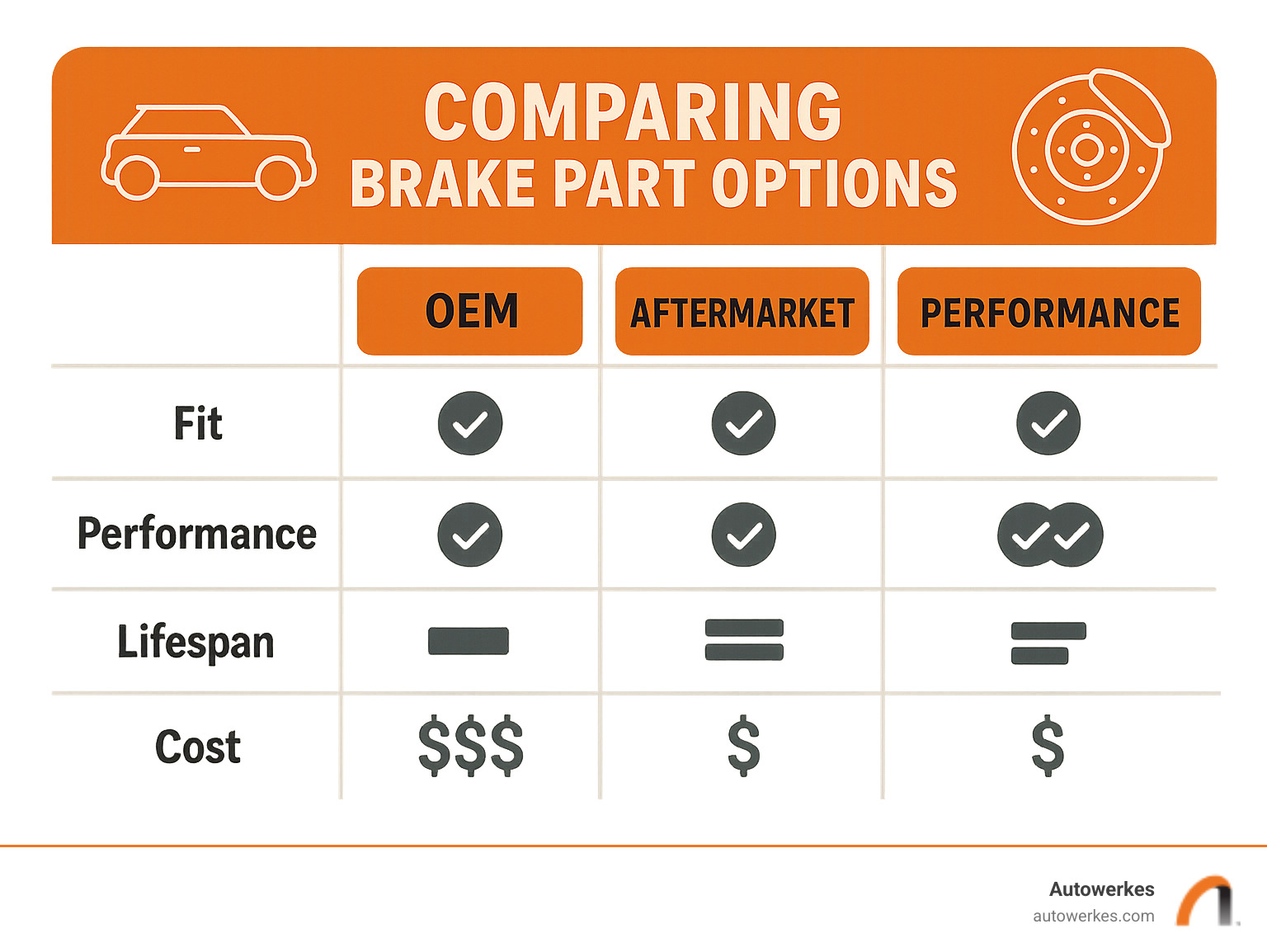Mini Cooper Brakes: When to Repair, What to Expect

Understanding Your Mini Cooper's Brake System: The Foundation of Safe Driving
Mini Cooper brake repair involves diagnosing and fixing issues with brake pads, rotors, calipers, brake fluid, and electronic systems like ABS. Common signs you need brake repair include:
- Squealing or grinding noises when braking
- Soft or spongy brake pedal feel
- Steering wheel vibration during braking
- Vehicle pulling to one side when stopping
- Dashboard warning lights for brakes or ABS
- Longer stopping distances than normal
The brake system is the most important safety component in your Mini Cooper. Your Mini uses a disc brake system with rotors connected to each wheel and brake pads that squeeze against them to create stopping power. A failure in any part of this system compromises your ability to stop safely.
Common brake problems in Mini Coopers include worn brake pads (typically lasting 30,000-50,000 miles), warped rotors from heat buildup, brake fluid leaks, and electronic issues with the ABS or EBD systems. The good news is that most brake problems provide warning signs before they become dangerous.
This guide will help you recognize warning signs, understand the repair process, and maintain your Mini's stopping power.

Quick mini cooper brake repair definitions:
Diagnosing Common Problems: A Guide to Mini Cooper Brake Repair
When it comes to your Mini Cooper, understanding the cues your braking system gives you is paramount. Ignoring these signs can lead to more extensive repairs and compromise your safety on the roads of Huntington Beach, Newport Beach, or wherever your Mini takes you. Here are the most common indicators that your Mini Cooper needs brake repair.
Warning Signs from Your Brake Pads and Rotors
Your brake pads and rotors work together to stop your Mini. When they wear, they'll let you know with distinct sounds and sensations.
- Squealing Noises: This high-pitched squeal is often the first warning. Many brake pads have a built-in metal indicator that makes this sound when the pads are thin, signaling it's time for an inspection.
- Grinding Sounds: This harsh, metal-on-metal sound is a critical warning. It means the brake pads are completely worn away, and the metal backing plates are now grinding against and damaging your rotors, leading to a more expensive repair.
- Steering Wheel Vibration or Pulsating Pedal: A shaking steering wheel or pulsating brake pedal often indicates warped brake rotors. Rotors can warp from extreme heat, and their uneven surface creates a throbbing sensation as the pads make contact.
- Visual Inspection: We always recommend a visual check of your brake pads. New pads are typically 10-12mm thick. The absolute minimum is 3mm; anything less is a hazard and requires immediate replacement.

- Typical Lifespan & Driving Style Impact: Pad lifespan varies from 30,000 to 50,000 miles, heavily influenced by your driving style. Aggressive, stop-and-go city driving wears pads much faster than smooth highway cruising, leading to more frequent Mini Cooper brake repair.
For more in-depth information about our expert brake services, visit our dedicated page: More info about our expert brake services.
Understanding Pedal Feel and Fluid Issues
Beyond pads and rotors, the hydraulic system is crucial. Issues here often manifest as changes in your brake pedal feel.
- Soft or Spongy Brake Pedal: A pedal that feels soft, "mushy," or sinks further than usual often points to air in the brake lines, which compromises the hydraulic pressure needed for effective braking.
- Brake Fluid Leaks: A soft pedal can also signal a brake fluid leak. Look for puddles under your car or a low fluid level in the reservoir. Leaks severely reduce stopping power and require immediate attention.
- Master Cylinder Concerns: A failing master cylinder, the heart of the hydraulic system, can't create enough pressure, leading to a soft or sinking pedal. This is a critical safety issue.
- Brake Fluid Type and Flush Schedule: Minis typically use DOT 4 brake fluid. This fluid is hygroscopic, meaning it absorbs moisture over time. This moisture lowers its boiling point (risking "brake fade") and can cause internal corrosion. We recommend a brake fluid flush every two years to prevent component damage.

For more information on what dashboard lights mean, explore our guide on: Learn about brake system warning lights.
When Electronics Need Attention: ABS, EBD, and Your Mini Cooper Brake Repair
Modern Minis use advanced electronic systems like ABS (Anti-lock Braking System) and EBD (Electronic Brake-force Distribution) that improve safety.
- ABS Warning Light: An illuminated ABS light means the anti-lock system is offline. Your standard brakes will work, but you lose the safety feature that prevents wheel lock-up and skidding in an emergency.
- EBD System Function and Failure: EBD optimizes braking force to each wheel for stability. A failure can cause uneven braking or pulling to one side.
- Sticking Calipers: A sticking caliper keeps the brake partially applied, causing the vehicle to pull, a burning smell, and rapid, uneven wear on the affected wheel's pad and rotor.
- Reduced Braking Efficiency: If you need to press the pedal harder or your stopping distance has increased, it's a clear sign of a problem. This could be due to worn parts, air in the system, or electronic issues.
- Diagnostic Trouble Codes: Electronic issues trigger Diagnostic Trouble Codes (DTCs). Our technicians use specialized scanners to read these codes, ensuring a precise diagnosis and effective Mini Cooper brake repair.
The Repair Process: What to Expect and Key Decisions
Once we've diagnosed your Mini Cooper's brake issue, it's time for the repair. You have important choices to make, from selecting parts to understanding the investment. Let's walk through what to expect in your Mini Cooper brake repair journey.
Choosing the Right Parts for Your Mini Cooper
The quality of your brake parts directly affects your vehicle's performance and safety. Your Mini Cooper deserves components that match its engineering excellence.
- OEM (Original Equipment Manufacturer) Parts: These are identical to the components your Mini had from the factory, guaranteeing a perfect fit, predictable performance, and compatibility with all vehicle systems.
- High-Quality Aftermarket Parts: Reputable aftermarket brands can offer excellent value or even performance benefits, such as ceramic pads that produce less dust. However, quality varies widely, so expert selection is key to avoiding noise or premature wear.
- Performance Upgrades: For enthusiasts, upgrades like drilled or slotted rotors can improve heat management for spirited driving. These parts often come with trade-offs, such as increased brake dust or noise.
At Autowerkes, we help you choose the right parts based on your driving habits and budget. We only use components that meet our high standards, backed by comprehensive warranties on both parts and labor.

The Cost and Timeline for a Mini Cooper Brake Repair
Understanding the investment helps you plan for your Mini's care. While every repair is unique, we can provide realistic expectations for a Mini Cooper brake repair.
Brake pad replacement is the most common service, with costs varying by model and parts chosen. A complete brake job, replacing both pads and rotors, is a larger investment but ensures optimal performance and longevity, especially if rotors are warped or worn.
Diagnostic services are an investment in accuracy. Pinpointing the exact issue saves money by avoiding the replacement of unnecessary parts. A simple pad replacement usually takes one to two hours, while more complex jobs can take longer. We always provide a detailed estimate of costs and timeframes upfront.
Factors like your Mini's model, the extent of wear, and any related issues (like a seized caliper) will influence the final cost and timeline. We believe in complete transparency, so you'll receive a detailed estimate with no surprises.
DIY vs. Professional Service: Risks and Recommendations
While DIY brake work might seem straightforward, it's a complex job with high stakes, especially on a precision vehicle like a Mini Cooper.
Proper Mini Cooper brake repair requires specialized tools (like caliper wind-back tools and diagnostic scanners) and knowledge of specific procedures, such as resetting an electronic parking brake. Mistakes can damage expensive components.
Most importantly, errors carry significant safety risks. Improperly installed parts or air in the brake lines can lead to brake failure when you need it most. Ignoring brake problems only compounds these risks and increases the final repair cost.
Professional service at Autowerkes guarantees the job is done right. Our ASE-certified technicians have Mini-specific expertise, the correct tools, and follow manufacturer specifications precisely. We perform critical post-repair checks to ensure your vehicle's safety and performance are fully restored.

Your Mini Cooper deserves precision care. When brake issues arise, trust the experts who understand its sophisticated systems and can restore its stopping power safely and effectively.
Ready to give your Mini the expert brake service it deserves? Don't wait for small problems to become big ones. Make an Appointment with our certified technicians today.

.svg)



.jpg)
